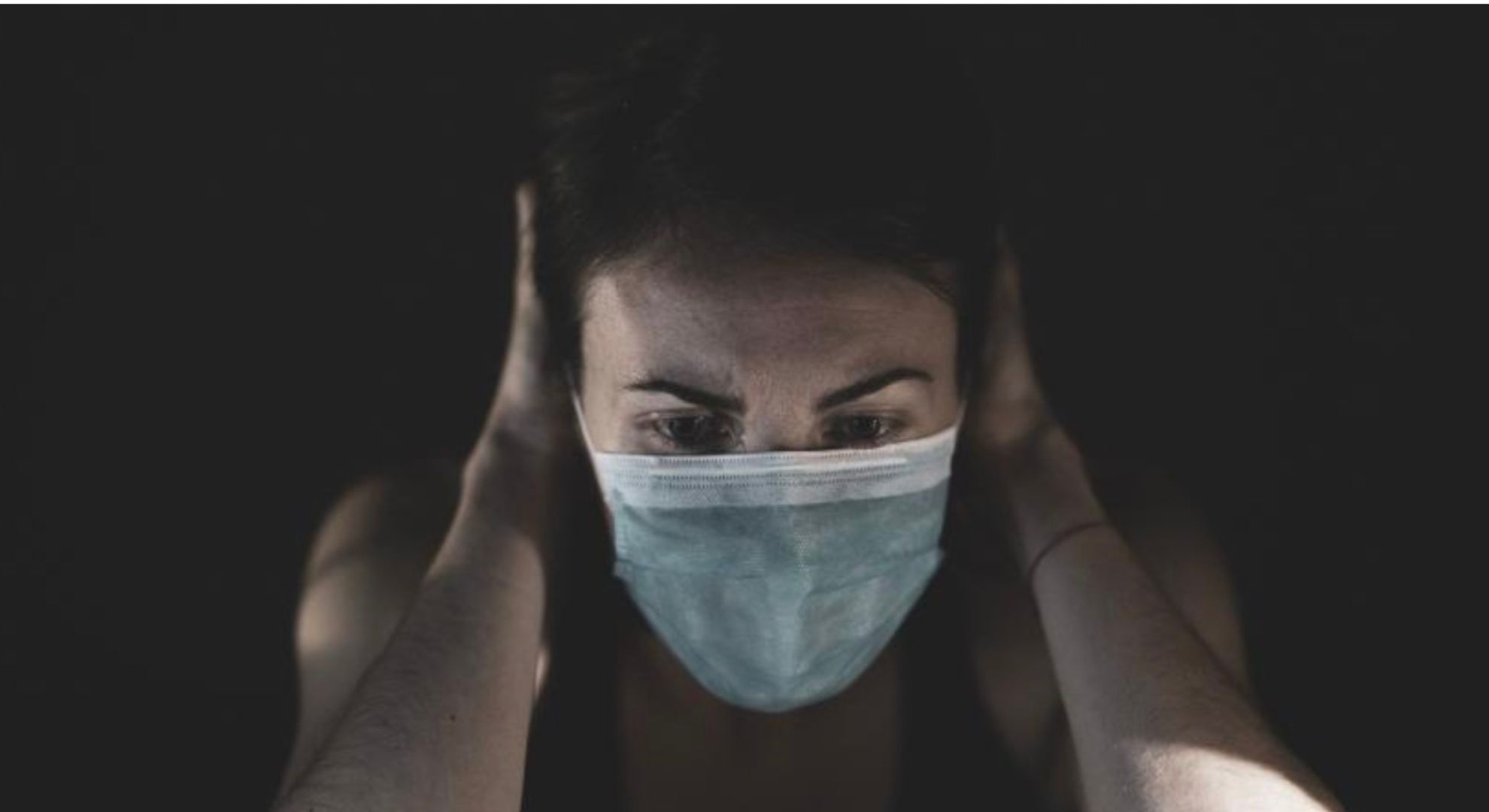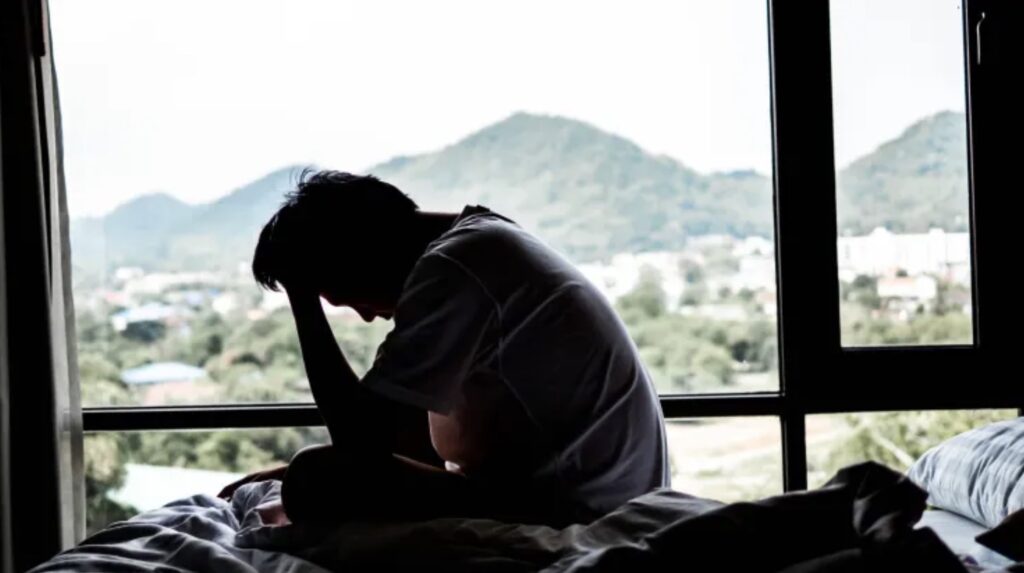The mere thought of Covid-19 conjures images of family members getting sick, workers losing their jobs, children adapting to online classes, empty streets, poor families falling further into extreme poverty, wailing sirens of an ambulance, overworked medical frontliners, and daily deaths. To say that the pandemic tremendously affected our lives is an understatement. In fact, it has changed our lives forever.
However, a recent report by The BMJ, an online medical trade journal which is dedicated to publishing medical research from all disciplines and therapeutic areas, is claiming otherwise, saying that the pandemic hardly impacted the public’s mental health and anxiety.
The report investigated 137 studies, mostly from high-income European and Asian countries. It claimed that depression became a little worse in general, especially among women (who may have suffered more, considering their jobs at the workplace and the responsibilities they have in taking care of the family) older people, university students, and those belonging to the sexual or gender minorities. However, the research also stated that at a population level, there has been a high level of resilience during Covid-19, and noted that “changes in general mental health, anxiety symptoms, and depression symptoms have been minimal to small.”
The study (Mental health and the covid-19 pandemic | The BMJ) was, of course, met with opposing opinions and intense criticism, particularly from people online who noted they have personally experienced anxiety attacks, depression, and needed help. They also took it to Twitter to express their view, and for some, their frustration.
https://twitter.com/BetsyStover/status/1634209328474333188?s=20
I had no help with my firstborn at all, just me and it was cool … now I just write horror about motherhood. No big whoop <sarcasm>
— Lauren Lee Smith (@lololeereverie) March 10, 2023
‘Minimal’ as compared to what, total societal collapse? The mere suggestion that human damage is minimal sets up an entire subset of society for added feelings of isolation, ‘otherness,’ & stigmatization. Like, who is this report even FOR?
— Luke A. Renner (@LukeARenner) March 11, 2023
Oh please. Higher suicide rates. Higher povity rates. A crumbling economy. Stop trying to feed us medacine by making zoom sounds and calling it an airplane. Everyone with eyes doubts the crediblity of this article.
— Dantics (@DanticsOfficial) March 12, 2023
Thinking of my students who've told me they're sad and when I ask why, it's because a family member died of COVID. I wonder if they talked to any of them.
— Mhairi Forrest 🏴 (@mhairiforrest) March 12, 2023
Minimal? Really? I literally ended up in a psych ward. Never had any mental issues in the past. But something happened to me in February 2021 that I cannot explain. I literally lost my mind.
— DAVO OLSON (@davoolson) March 11, 2023
I'm not massively surprised to see this result. Imo our society has simply repressed the trauma, as reflected by our desperate speed to "move on." And no, it's not healthy. We'll never know the true cost in mental health.
— Tom Bacon (@TomABacon) March 10, 2023
Absolutely this. Let's see how Gen Alpha get on in a few years time, shall we? Kids are resilient, and that's a wonderful thing, but trauma imprints on ways that may not manifest for many years to come.
— DMac™ (@1nclusionRider) March 10, 2023
It is important to note, however, that the review did not look into third-world countries, or specifically focus on children, young people, and families below poverty line. Studies in the review are mostly from high-income European and Asian countries and did not include third-world countries like the Philippines—with strained and under-funded health systems—which extremely suffered the unprecedented toll. It should have looked into the minds of displaced families, especially young or older people belonging to disadvantaged groups. Moreover, the report should have considered persons with already existing mental problems, whose depression or anxiety were exacerbated by the health crisis.
Because of the barrage of bad news after bad news—the lockdowns, travel restrictions, a family member contracting the virus (some survived but alas, many did not), parents losing their job—more people struggled with their physical and mental health but not all were able to avail of help fast enough, due to lack of funds or support. The effect of the pandemic in people’s mental health was apparent, and for the underserved families in the Philippines, cries for help were out of loneliness, hopelessness, and a foreboding sense of doom.
Even now, when the pandemic has receded, and the lockdowns have been lifted, some people (particularly who lost a loved one, got sick but recovered, or are still having a hard time getting back on their feet) are still experiencing extended ‘aftershocks’. Some are, to this day, continue to fight and process what they have gone through and often fall into the vicious cycle of anxiety relapse. I know some young people who initially had social anxiety issues when face-to-face classes resumed; they felt being forcibly thrown out into a scary ‘outside world’ despite being unwilling and unprepared.
The government should ensure that mental health support programs are more accessible especially for the underserved because even with the BMJ study suggesting that the pandemic had minimal or no lasting impact on the people’s mental health, it is discernible that there is a massive effect on most people’s mental health. Some are just too shy or too afraid to express it, especially adolescents who who struggled with their mental health even before Covid.
On the other hand, the BMJ study also suggested that most people remained resilient and made the best out of the global health crisis. This part, I believe. If there is a glimmer of hope that we could focus on, in retrospect, the pandemic has improved our perspective of the world and other people, especially our families. It allowed us to prioritize what and who we have in our lives. We are kinder to ourselves now more than ever and took care of our health and the health of those we love.
It’s true, the pandemic crisis has taken a toll on humanity, but it also provided us with opportunities to reconnect creatively and relish quality time at home. And now that we’re out in the open again, we now savor the joy of reunions, and traveling, we realize strong we are to have survived one of the scariest health crises. The pandemic has changed our lives forever, and this lasting impact are the things that make us hopeful and happy just to be alive.
Other POP! stories that you might like:
That ‘new car smell’ that you love so much could be toxic to your health, according to new study
Dogs living in the radioactive site of Chernobyl have altered genes, study finds
The information overloading of the ‘Glass Generation’
Here are some of the most iconic pop culture moments that can’t seem to leave everyone’s minds
High-end luxury brand removes IG post after accusation of mocking Asians with ‘slanted eye’ pose
Japanese café fires waitress for serving cocktails with her blood as requested by a customer




